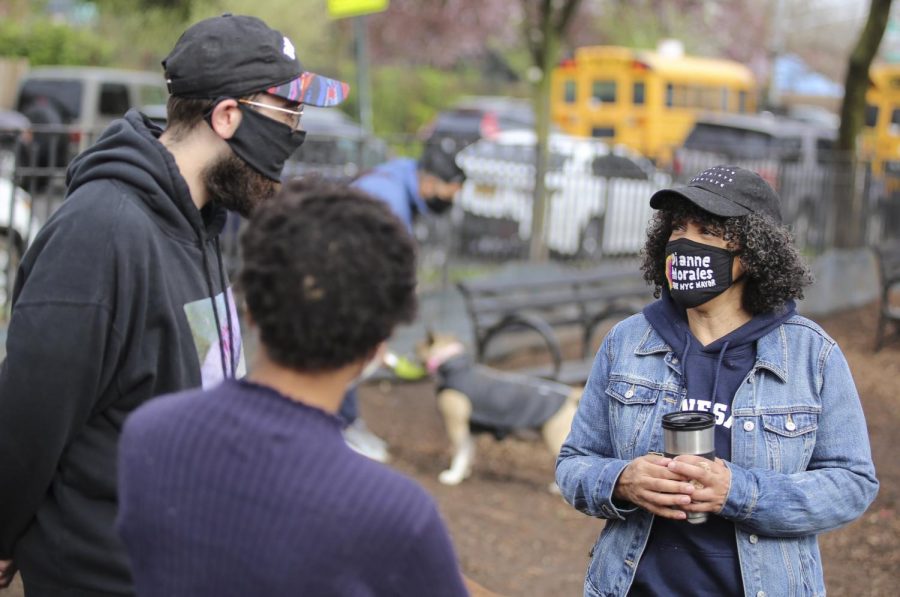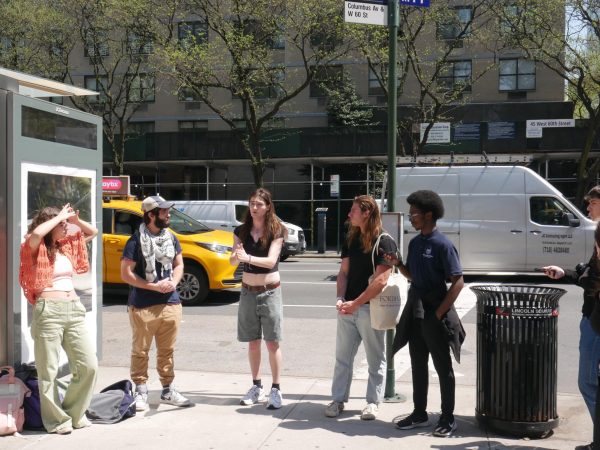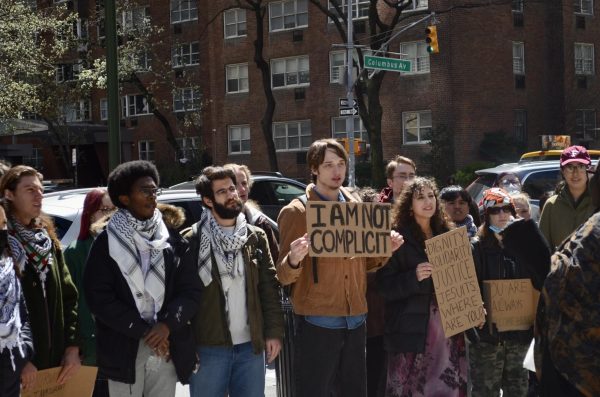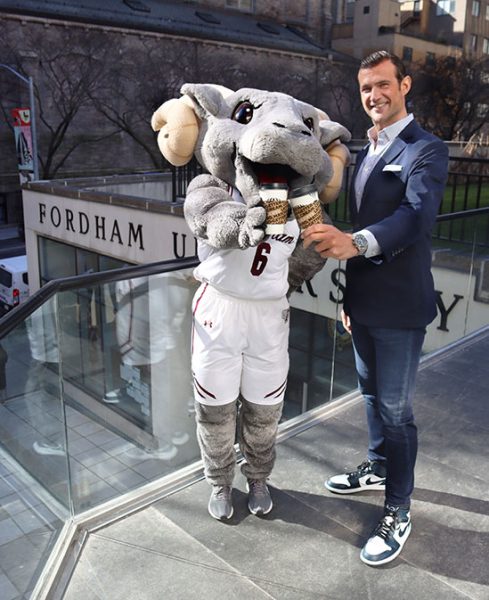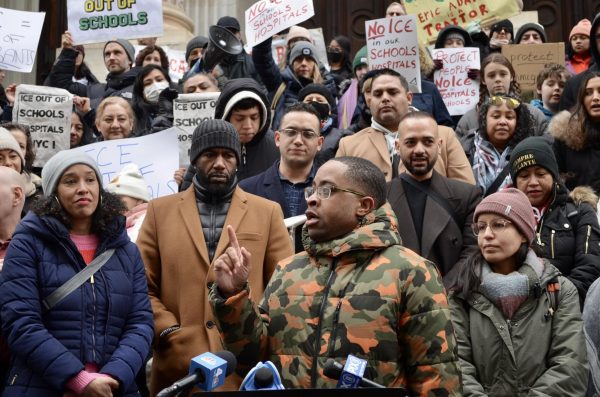Fordham Students Share Support for NYC Mayoral Candidates
As New York City gears up for the mayoral primary election, Fordham University students provide a sample of political opinions that the city’s youngest voters may hold.
In an unscientific survey, Fordham students revealed the issues and candidates they’re paying attention to the most leading into the mayoral primaries.
While a common thread among the students seemed to be special attention to city infrastructure, each student had their own concerns for New York City’s future.
“The issue that matters the most to me is actually fighting for affordable housing, and not affordable housing in the way that the DeBlasio administration has defined affordable under the Mandatory Inclusionary Housing Program,” said Jack McClatchy, FCRH ’21.
McClatchy also mentioned transportation and public safety as two other issues he is paying close attention to when studying mayoral candidates.
McClatchy cites the 14th Street busway program as something he’d like to see more of and called it a “massive success.” He said he believes that creating more busways could help improve the city’s public transportation and is glad the city seems to be taking steps in the right direction, citing the current work-in-progress busway in Washington Heights.
“I’m also paying attention to stances of candidates on public safety and community-led public safety visions and defunding the NYPD,” said McClatchy. “So far, the only candidate who has made any real waves in that is Dianne Morales, who is pushing for a $3 billion reduction in the operating budget of the NYPD.”
Gabriel Garcia, FCLC ’23, shared a similar concern about the New York City Police Department. “The most important issues to me are related to policing and the COVID-19 recovery,” he said.
Instead of focusing on issues surrounding public safety, Anatoliy Yampolskiy, FCLC ’24, raised concerns about New York City’s infrastructure. “As a native New Yorker, the most problems I hear about the city are from the lack of infrastructure: broken down roads, potholes, the system of the MTA lacking. There’s always late trains, [and] problems going on with the MTA,” Yampolskiy said.
In addition to lacking infrastructure, Yampolskiy was also interested in tax reform and argued that “taxes are too high for lower-income families.”
The candidate Yampolskiy is backing addresses all these issues, he said. “One of my top choices would be Andrew Yang,” he said. “He addresses the lack of infrastructure, he talks about UBI, he wants to bring new opportunities into the city.”
According to Yampolskiy, Andrew Yang presents a unique vision of New York City as someone fresh into politics, not someone “of the Cuomo-types, the De Blasio-types that have always been in politics but haven’t really provided any solutions to our problems.”
Both McClatchy and Garcia hold candidate Dianne Morales as their first choice for the election.
“Dianne Morales is definitely the most activist candidate, the most left-leaning,” said Garcia.
However, as New York City elections now use ranked-choice voting, McClatchy and Garcia seek candidates to support besides Morales. Both initially placed Scott Stringer as a second choice, but recent allegations of sexual misconduct against Stringer changed both of their minds.
“I’m undecided on Stringer now. I will wait on what information comes out between now and the June 22 primary,” said Garcia.
McClatchy removed Stringer down from his choices, replacing him with Maya Wiley as a second choice. “I don’t think I could rank anyone else,” said McClatchy.
Ultimately, this sample of Fordham students suggests that college-aged voters will tend to support left-leaning candidates. However, the students who agreed to speak about the mayoral election represent only a portion of university students engaged in local politics. This segment of the student population is a tiny portion of the electorate.
I asked the question “Are you registered to vote in New York City?” to 31 Fordham students. Only eight said yes. One of those eight said they do not plan on voting in the mayoral election.
Unfortunately, college-aged students tend to be one of the voting populations with a low rate of voting, according to Christian Greer, associate professor of political science at Fordham University. Because this demographic is less likely to vote than others, the behavior of elected officials reflects the lack of attention.
“Responsive politicians think about who votes, but also who is active in civic engagement,” noted Greer. “Since young people tend not to over-perform at the polls, elected officials do not have a direct incentive to cater to their needs.”
If this is the case, then it is essential to ask why university students have such a low turnout rate in local elections. For most, voting behavior boils down to location.
“If students are going back home after they graduate, there is no reason they should be voting in New York,” said Bruce Berg, another political science professor at Fordham.
Many students prefer to keep their voting status registered to their home outside of the university. Alex Schandlbaeur, FCRH ’23, is one of these students.
Schandlbaeur was registered to vote in New York but has switched his registration to his home in Washington, D.C., after receiving an official ID card from Washington.
Voter ID regulations played a significant role in Schandlbaeur’s decision to register in Washington instead of New York City. “I can’t vote online as easily without a New York ID,” said Schandlbaeur.
“I’m also more informed about DC’s issues and wouldn’t be confident voting for something I don’t know about,” said Schandlbaeur, hinting at another reason why college students are not registering to vote locally.
Professor Berg also states that Fordham students who are registered to vote in New York City claim that status as native New Yorkers or it is because they plan to live in the city post-graduation.
For the students who agreed to express their political opinions for the article, this is true. Both Yampolskiy and Garcia are native New Yorkers, while McClatchy plans to continue living in New York City post-graduation.
The New York City Democratic primary will be held on June 22, 2021. With the number of registered Democratic voters significantly outnumbering registered Republican and unaffiliated voters, the results of the Democratic primary will more than likely decide the outcome of the general election on November 2nd.
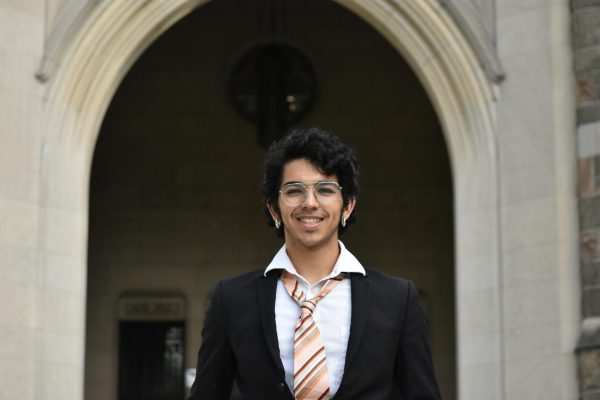
Sebastian Diaz is a senior from Chapel Hill, N. C. who is double majoring in journalism and film. After starting as a news reporter for The Fordham Ram...



































































































































































































